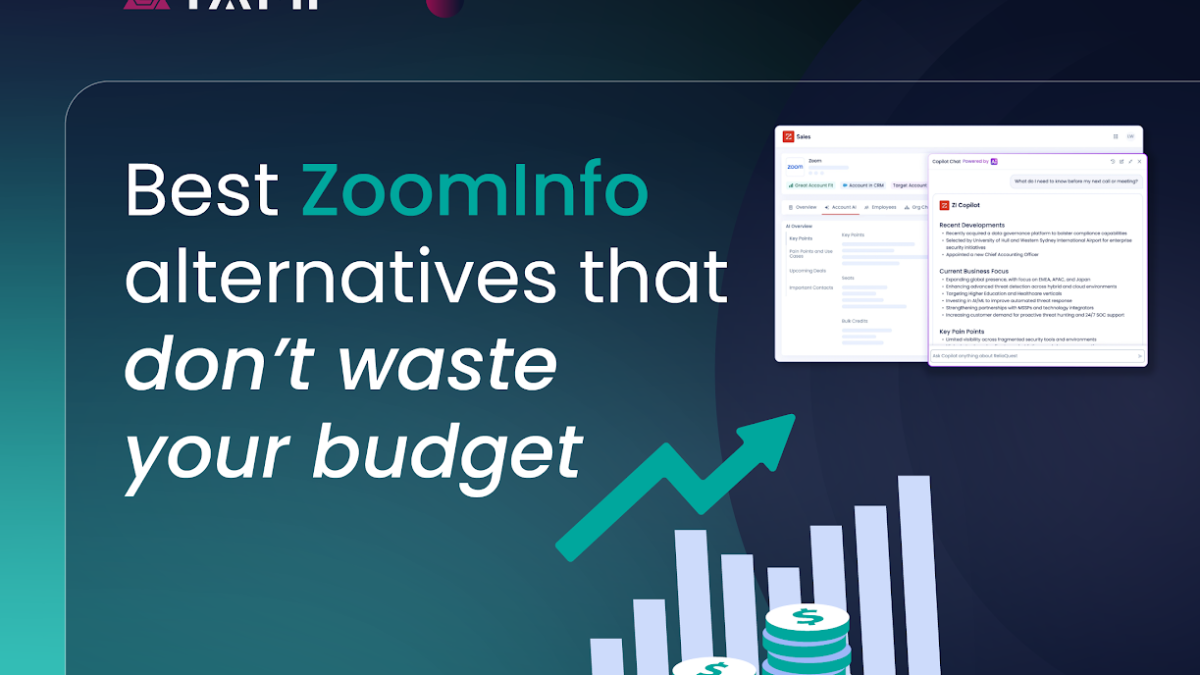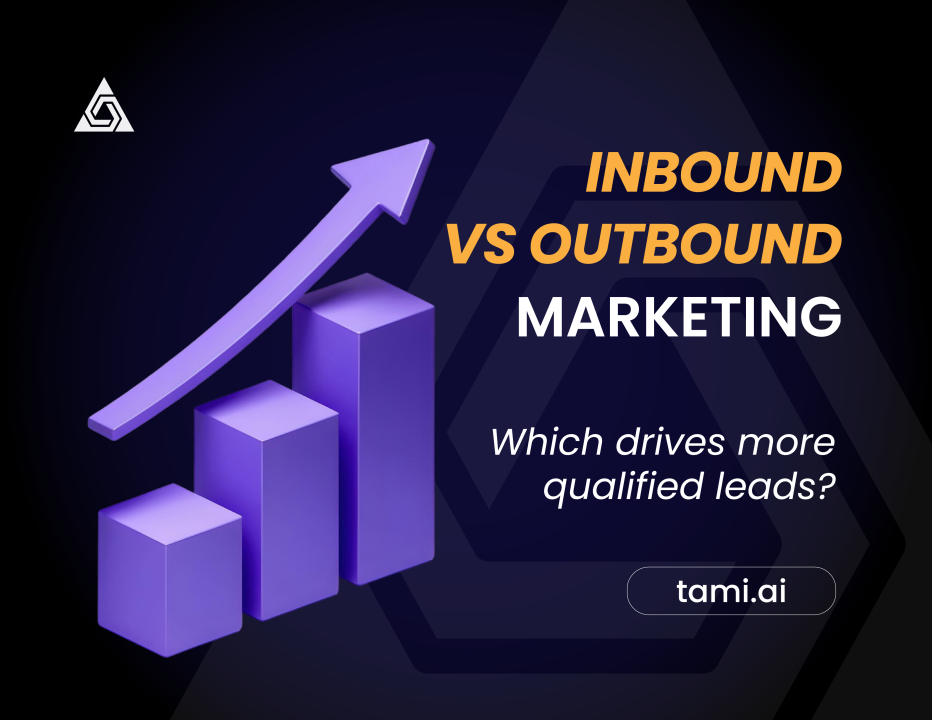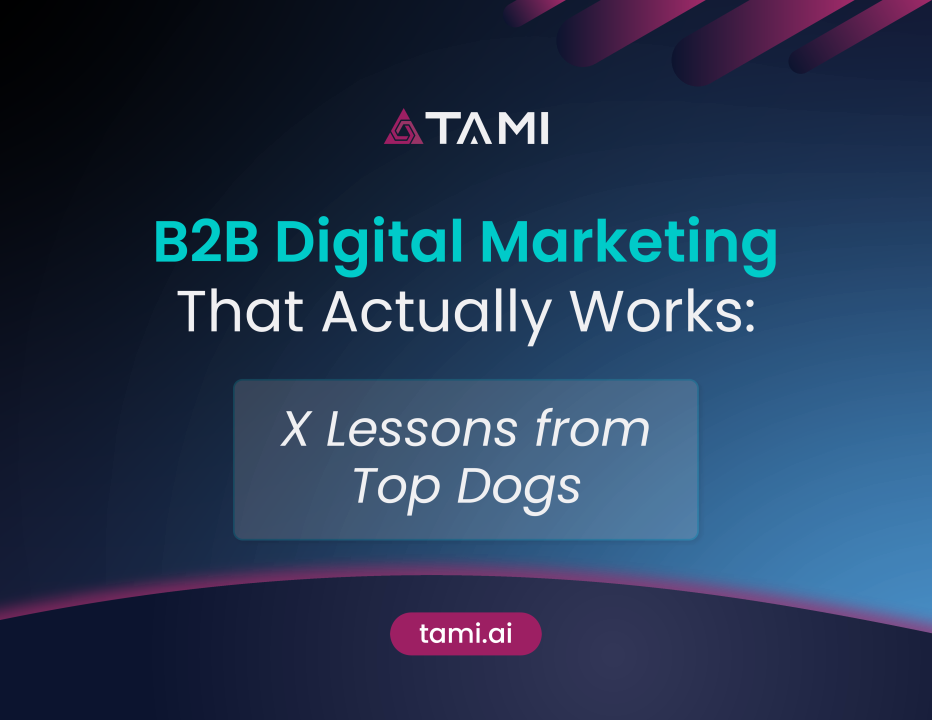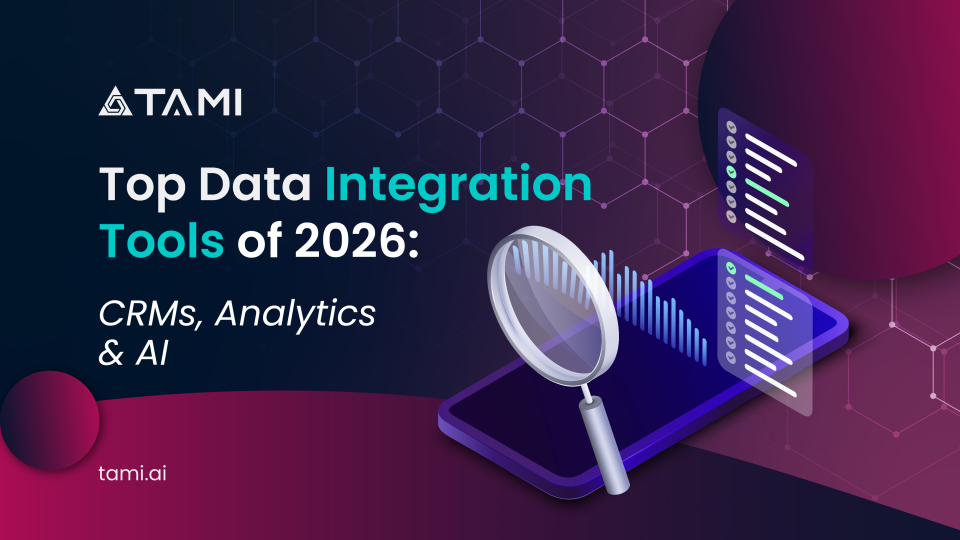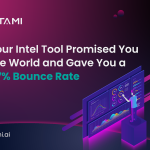
Using a Competitive Intelligence Tool to Find High-Converting Leads
15/10/2025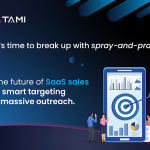
SaaS Sales in 2026: Winning with Targeting, Not Volume
15/10/2025ZoomInfo is one of the biggest names in B2B data, but its scale often comes with a price that doesn’t translate into accuracy or ROI. Many sales teams discover that, despite paying enterprise-level fees, their data still needs constant cleaning. If you’re evaluating better options, several ZoomInfo alternatives deliver verified data without the high overhead.
The best data platforms combine accuracy, transparency, and integrations that actually make your pipeline more efficient. Here are five top choices that consistently perform better on quality and value.
Best Zoominfo alternatives: At a glance
The table below compares five of the best ZoomInfo alternatives in 2025, evaluating pricing, data accuracy, and core strengths, to help you decide which platform aligns best with your team’s goals and budget.
| Platform | Pricing | Accuracy | Key Strengths | Best For | Drawbacks |
|---|---|---|---|---|---|
| TAMI | Transparent, budget-friendly | Excellent – real-time enrichment, <5% bounce rate | AI-driven data, competitor insights, CRM auto-refresh | Teams prioritizing accuracy and ROI | Data depth may overwhelm smaller teams |
| Lead411 | Flexible monthly plans | High (especially in the US) | Intent data, trigger alerts, verified mobiles | Mid-market US sales teams | Limited global coverage |
| Lusha | Low-cost, credit-based | Moderate | Simple Chrome extension, fast LinkedIn lookup | SDRs, recruiters, small teams | Restricted database, limited insights |
| Apollo.io | Free + affordable tiers | Medium | Combined data + outreach tool, easy UI | Startups and SMBs | Lower global accuracy |
| Cognism | Premium/enterprise-level | High (GDPR-compliant) | Verified mobiles, strong EU coverage, intent signals | EMEA-focused teams needing compliance | Smaller dataset, higher price |
1. TAMI

TAMI stands out as one of the most data-accurate and budget-efficient ZoomInfo alternatives. It’s designed around real-time enrichment and contact verification, so every record in your CRM stays live, fresh, and relevant.
TAMI’s AI scans the web continuously to detect changes in job titles, company activity, and tech stack, ensuring that sales and marketing teams never waste time on outdated data.
Unlike most platforms that stop at email and phone information, TAMI maps company-level intelligence: payment providers, shipping partners, ecommerce technologies, and even which competitors your prospects are working with. This allows teams to build targeted lists for account-based campaigns or find lookalike companies with high purchase intent.
Pros:
- Real-time verified data with less than 5% bounce rate
- AI-driven enrichment and competitor targeting
- Deep integrations with CRMs like HubSpot, Salesforce, and Pipedrive
- Global coverage and highly transparent data sourcing
Cons:
- Data depth can overwhelm smaller teams without clear segmentation strategies
Verdict: TAMI is ideal for revenue teams that prioritize accuracy and efficiency over list volume. It helps reduce waste and has proven to increase conversion rates by up to 10x compared to traditional providers.
2. Lead411
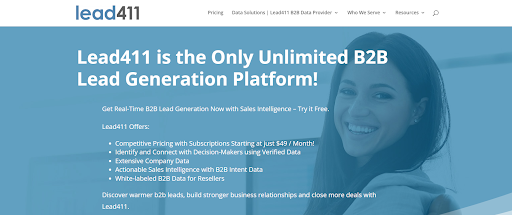
Lead411 has built a strong reputation for balancing price and performance. It focuses heavily on verified emails and mobile numbers, combined with intent data and growth alerts. Many users appreciate its simplicity and flexible monthly plans, which make it easier to scale without long contracts.
It’s particularly popular with US-based sales teams thanks to reliable domestic coverage and responsive support. The platform’s trigger alerts, such as funding rounds, job changes, or company expansions, are useful for timing outreach.
However, its international database is thinner compared to global players like TAMI.
Pros:
- Affordable and flexible pricing
- Verified contact accuracy in the US market
- Trigger alerts for key buying signals
Cons:
- Limited depth outside North America
- Smaller ecosystem of integrations compared to enterprise tools
Verdict: Lead411 is a solid middle-ground solution for mid-market sales teams that want dependable data quality without ZoomInfo’s enterprise cost structure.
3. Lusha
Lusha built its reputation on simplicity and ease of access. Its browser extension lets users find and verify contact data directly from LinkedIn or company sites, which makes it useful for SDRs and recruiters.
Compared to ZoomInfo, Lusha’s pricing is significantly lower and offers flexibility for smaller teams that don’t need full-scale enterprise data enrichment.
While it performs well for one-to-one prospecting, Lusha’s database is less robust for large-scale targeting or deep company intelligence. Its credits model also becomes limiting once outreach volume scales.
Pros:
- Very simple to use
- Low-cost entry point with transparent pricing
- Excellent for individual prospecting or recruiting
Cons:
- Limited database size
- Credit model can become restrictive for scaling teams
Verdict: Lusha is ideal for small teams or individual contributors who want a straightforward, plug-and-play enrichment tool without enterprise complexity.
5. Apollo.io

Apollo.io combines contact data with an integrated sales engagement suite, making it a good choice for smaller teams that want to run prospecting and outreach from a single platform.
It provides access to a large database, sequencing tools, and a Chrome extension for on-the-go enrichment from LinkedIn or websites.
The interface is intuitive, and pricing is much more accessible than ZoomInfo. However, the tradeoff is lower data accuracy and less depth in international markets. Users often supplement Apollo data with manual verification or third-party enrichment to maintain deliverability.
Pros:
- All-in-one platform with data and outreach tools
- Affordable pricing with a generous free tier
- Quick enrichment via Chrome extension
Cons:
- Less accurate than dedicated enrichment tools
- Weaker coverage in Europe and Asia
Verdict: Apollo is best suited for startups or early-stage SaaS companies that need an integrated workflow and can tolerate some data cleanup.
5. Cognism

Cognism positions itself as a GDPR-compliant European data provider with strong intent and outreach functionality. It’s one of the few alternatives that emphasizes privacy compliance and coverage across EMEA markets, making it a contender for teams that sell into Europe.
Its strengths lie in verified mobile data, intent signals, and a user-friendly interface for SDRs. Cognism also integrates with tools like HubSpot and Outreach, allowing seamless list creation and engagement.
However, its dataset is smaller than ZoomInfo’s, and pricing can still approach enterprise levels, especially for larger teams.
Pros:
- GDPR-compliant and strong EU coverage
- Verified mobile and intent data
- Simple integration into popular sales stacks
Cons:
- High pricing tiers for advanced features
- Smaller database compared to global players
Verdict: Cognism is a good fit for companies that operate in regulated markets or prioritize compliance. While not the cheapest, it offers dependable quality in specific regions where accuracy matters most.
How to choose the best ZoomInfo alternative
The right platform depends on your sales motion and data expectations. If accuracy and ROI are your top concerns, prioritize tools that refresh data continuously and integrate seamlessly into your CRM.
Real-time enrichment is the difference between sending one good email and wasting fifty.
For teams that want a true alternative that delivers both depth and precision, TAMI is the most well-rounded choice. It consistently outperforms competitors on data freshness, bounce rates, and the ability to uncover market intelligence beyond contact details.
If your goal is to scale outbound without scaling wasted spend, TAMI gives you an advantage that goes beyond database size.
Final thoughts
ZoomInfo remains one of the most recognizable data platforms, but recognition doesn’t always equal efficiency. Better tools now offer cleaner data, smarter enrichment, and pricing that scales with your needs instead of your logo size.
TAMI, Lead411, Apollo.io, Cognism, and Lusha all deliver real alternatives that help you spend less and convert more. Evaluate them based on your team’s workflow, geography, and volume needs, but always measure success by cost per qualified lead, not by the number of contacts exported.
If your team wants real-time data accuracy and competitive insights that actually generate revenue, TAMI is the clear place to start. Get a free trial today and see for yourself!

